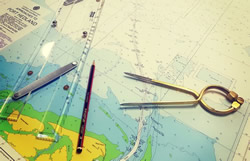Michelle Gibbings* says that amid the uncertainties the pandemic has thrown at us, we should never stop thinking about our next career move.
 It’s currently a challenging time for many people on the job front, and with that comes the inevitable line of thinking that it’s not a good time to look for new challenges.
It’s currently a challenging time for many people on the job front, and with that comes the inevitable line of thinking that it’s not a good time to look for new challenges.
While you may not want to switch careers immediately, it’s never a bad time to reflect on where you are at and to start thinking about what comes next.
Getting clarity on your next career step doesn’t have to be hard, and it can be fun.
It starts with throwing away the expectations that others have of us.
Expectations drive us to hold a fixed view as to the job we ‘should’ do and the career we ‘should’ have.
However, doing something just because you ‘should’ isn’t likely to make you fulfilled and satisfied.
In my work with clients and the research I’ve done, I’ve found that identifying your next career step is best done in the context of your whole life.
This is because it’s impossible to successfully separate your personal and professional lives.
There is no one right answer for this, as people have different aspirations and inspirations, which connect into how they view their career.
For some it may be merely a job that pays the bills.
Others may see work as central to their identity and so be seeking a job that’s fulfilling and challenging.
Because each person’s career aspirations differ, so too is what motivates their career choices.
For example, you may be seeking a career that is highly stable and secure, with set working hours and high flexibility.
Or it could be a well-paid, senior level and highly challenging — or provides learning opportunities.
Identifying your career drivers and parameters helps to set the scene for the environment you want to work in.
When you are thinking of making a career leap, be cautious about getting fixated on one thing and locking yourself in too early.
When you do you can inadvertently close yourself off to other opportunities.
People frequently find the alignment between their purpose and what they are good at by trying lots of different things.
Consequently, be willing to experiment with options. Volunteer and get involved in different activities, and constantly seek new learning.
The more you connect with others, get involved with groups, test and try new things, the greater your ability to see the world and the opportunities it offers.
By talking to a diverse range of people about the work they do you’ll gain insights into new areas, which will help to expand your field view.
This is all about expanding the range of what’s possible, so you can discover the best fit for you.
Pursuing your purpose and dream job often comes with a risk tag attached.
It can be easier to go with the flow and to follow what everyone else is doing.
Taking a path that others around you haven’t taken means you need to get comfortable with ambiguity, often make some tough choices, and back yourself.
There will be people around you who question your choice and challenge your thinking.
Don’t let their fears inhibit your thinking or throw you off course.
The more you are willing to take a risk and to have a go the more likely you are to find a career that is rewarding.
When I made the decision to leave the corporate world I walked away from the security of a high-paying salary into the unknown of running my own business.
I was willing to take that risk and make the accompanying trade-off so I could pursue a career change that aligned with my aspirations.
Life is a series of choices and often to do one thing requires you giving up something else.
For example, you may be willing to accept less money initially because the role is a learning opportunity, and provides the stepping stone for your next big career leap.
Know what matters to you, so you can know what you are willing to trade.
Author, Mark Twain who once said: “Success is a journey, not a destination. It requires constant effort, vigilance and re-evaluation.”
For me, that aptly applies to one’s career.
With every career there are good bits and bad bits, highs and lows.
What counts is how you show up every day, and the steps you take to keep yourself on your best path.
*Michelle Gibbings is a Melbourne-based change leadership and career expert and founder of Change Meridian. She can be contacted at [email protected].
This article first appeared at changemeridian.com.au.











